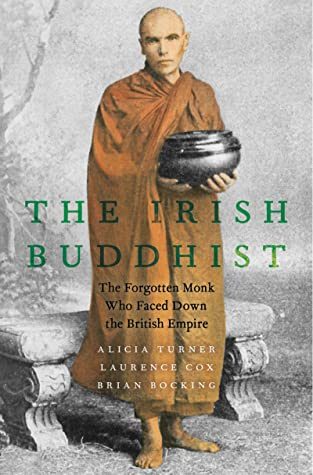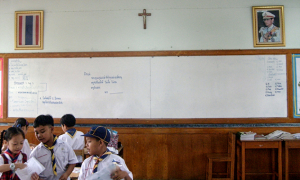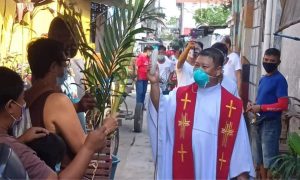Buddhism has always been a world religion, but its popularity in the West really dates only from the late nineteenth century, when much of the Buddhist world was subject to European colonial rule. Of all those Westerners who became interested in, and sought to promote Buddhism at this time, perhaps no-one is more unusual and interesting than U Dhammaloka, an Irishman who “went native” and became a Buddhist monk in British Burma at the turn of the twentieth century. U Dhammaloka is now the subject of a fascinating new book, The Irish Buddhist: The Forgotten Monk Who Faced Down the British Empire (Oxford University Press, 2020) cowritten by Alicia Turner, Laurence Cox, and Brian Bocking. Beyond the story of this intrepid Irishman, this book is also a social history of British Burma at the height of European imperialism. But what is distinctive about this social history is its focus on white, working-class Europeans in the highly cosmopolitan colonial states at this time. Some of them, and U Dhammaloka was one, shared political sympathies with the Asian subjects of these colonial states.
More on religion in Southeast Asia
How Christianity consolidated royalist, Buddhist “Thainess”
What do the late King Bhumibol and former Prime Minister Thaksin Shinawatra have in common? They're both alumni of Catholic private schools.
Religious minorities in Indonesia face discriminiation
"Spineless politicians, feckless government bureaucrats, and narrow-minded ulama officials" stand in the way of religious freedom in Indonesia.
Remembering the “progressive” Philippine Church
The Church should recall its long tradition of fighting for the oppressed and caring for the poor and marginalized, and act in the same spirit towards the current regime
 Facebook
Facebook  Twitter
Twitter  Soundcloud
Soundcloud  Youtube
Youtube  Rss
Rss 


